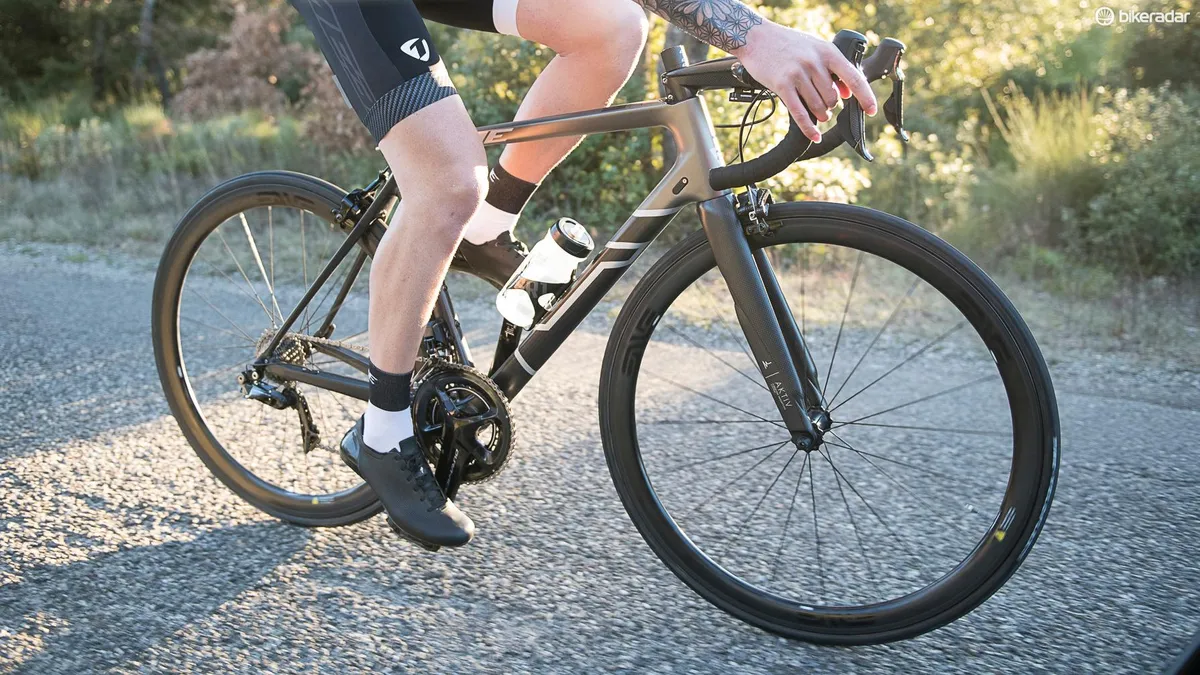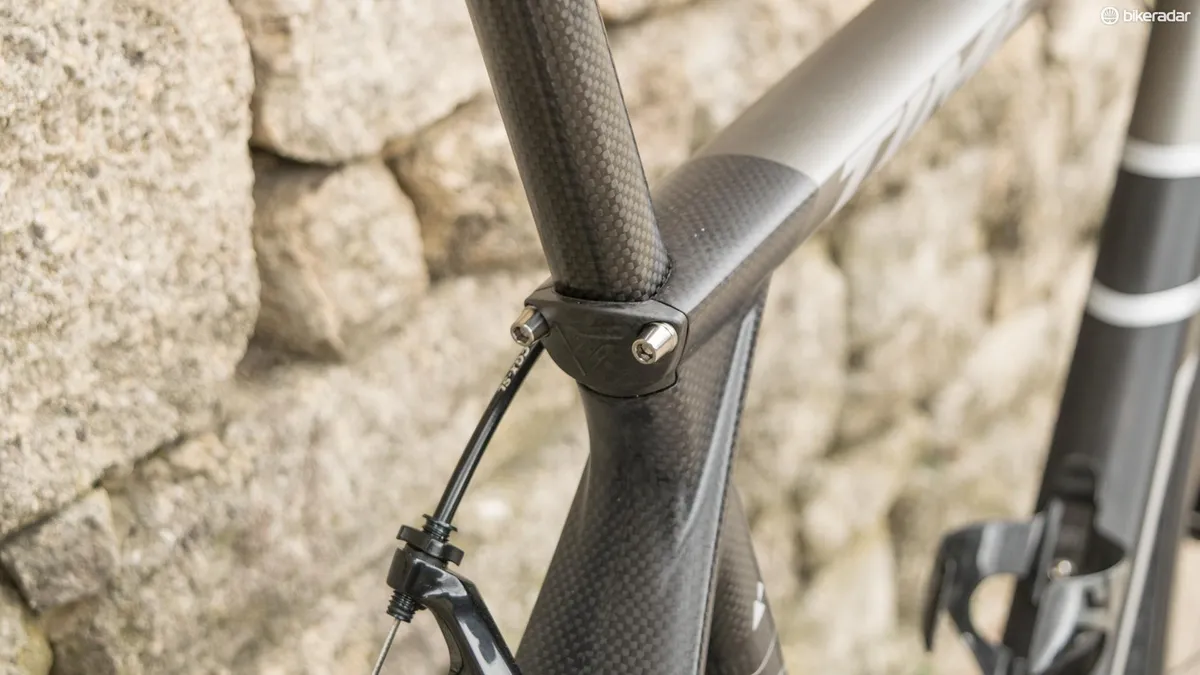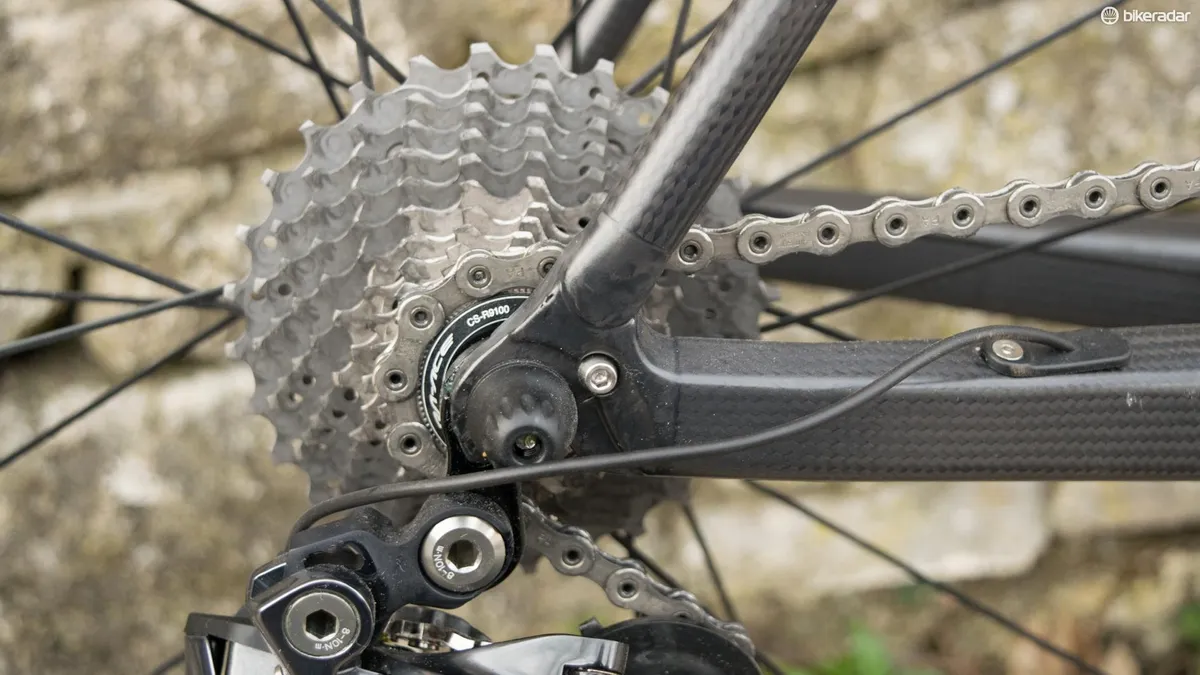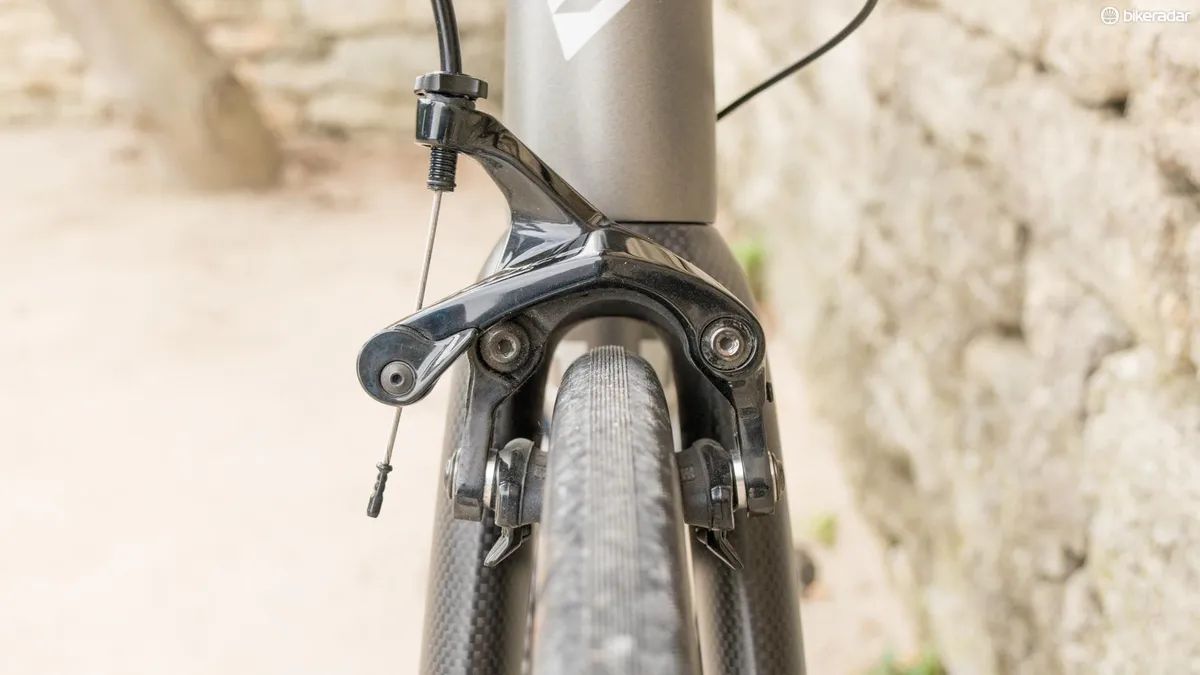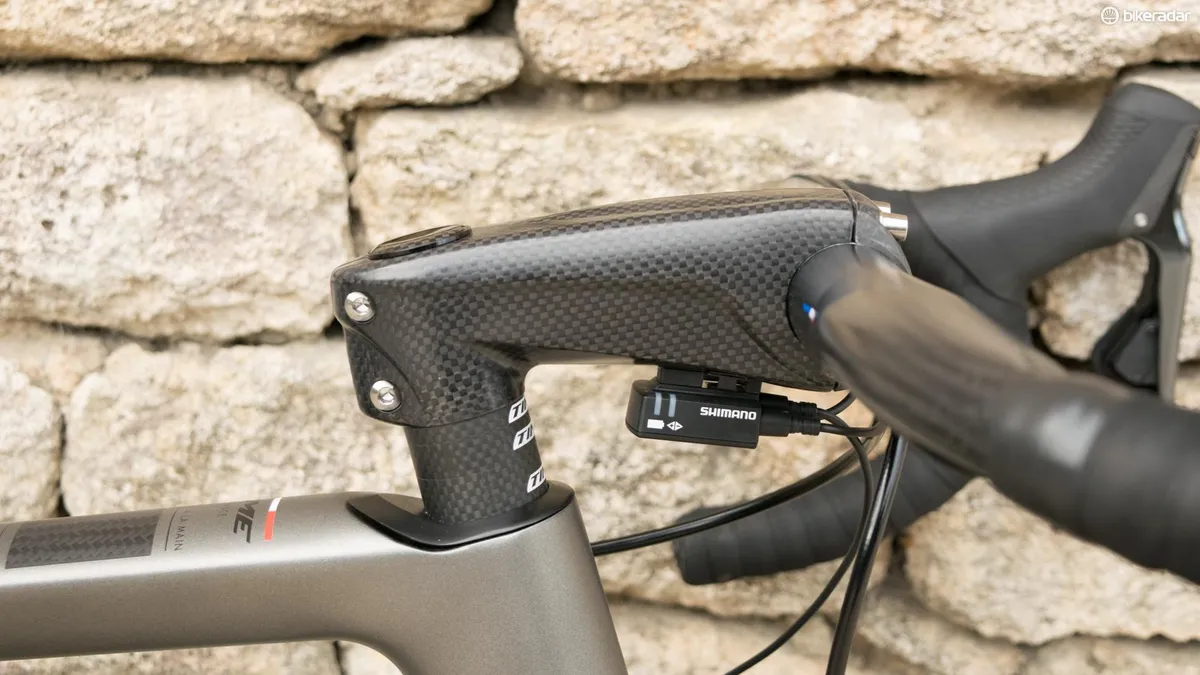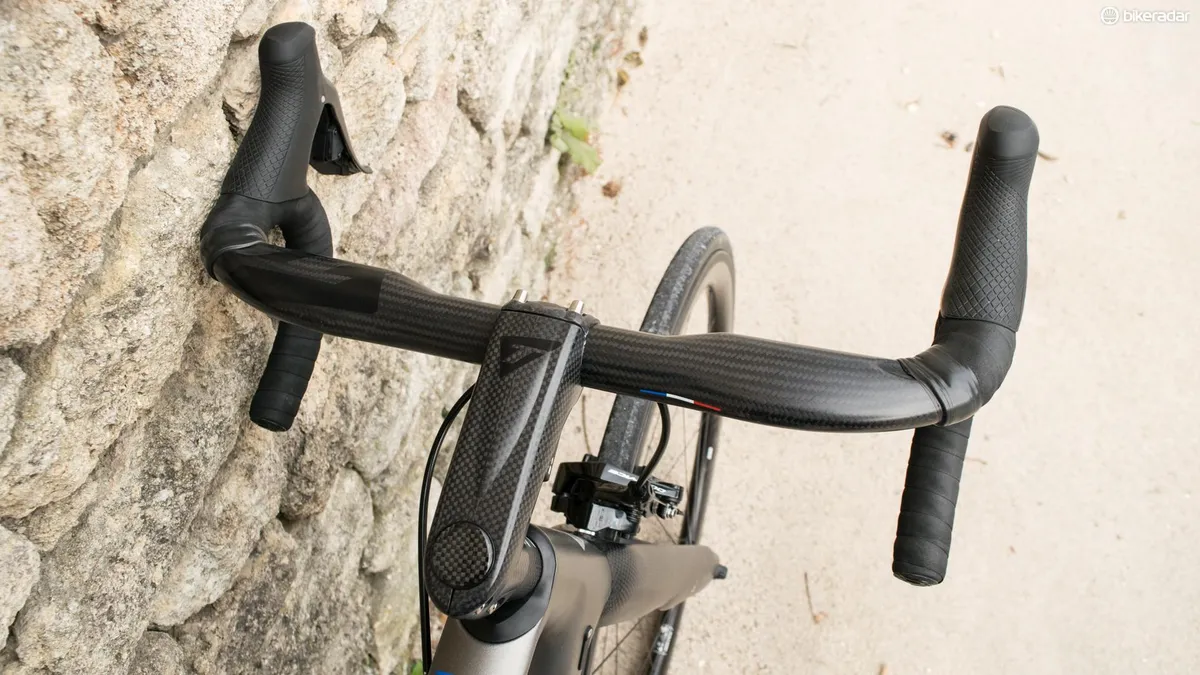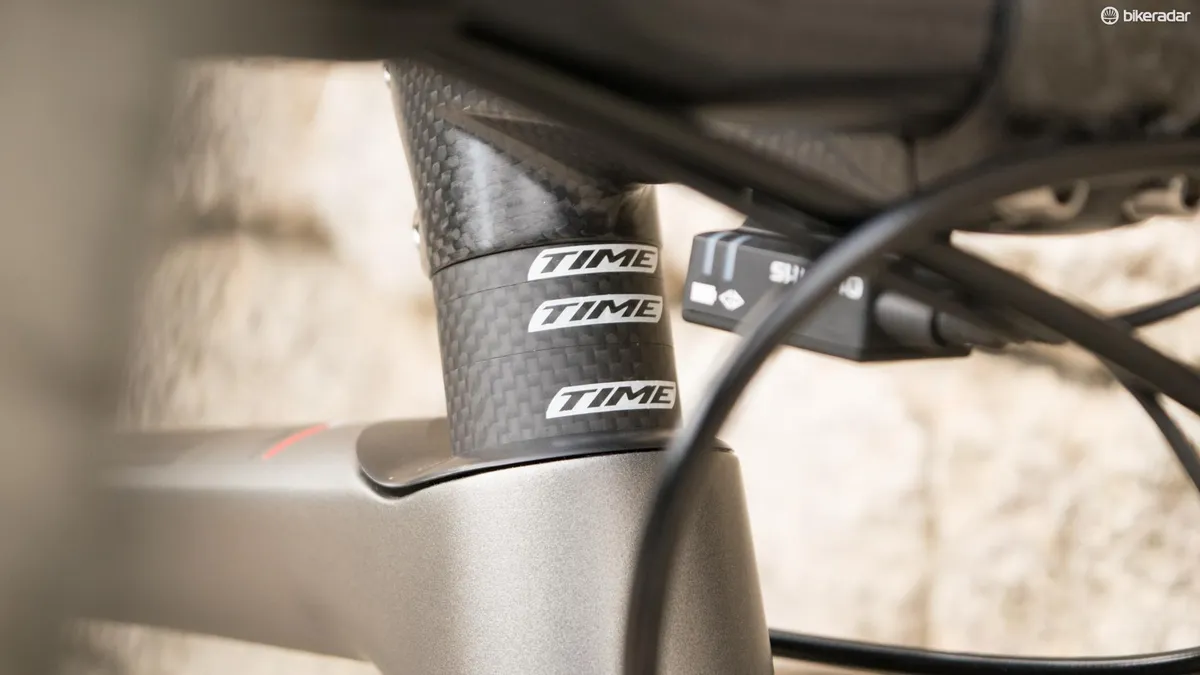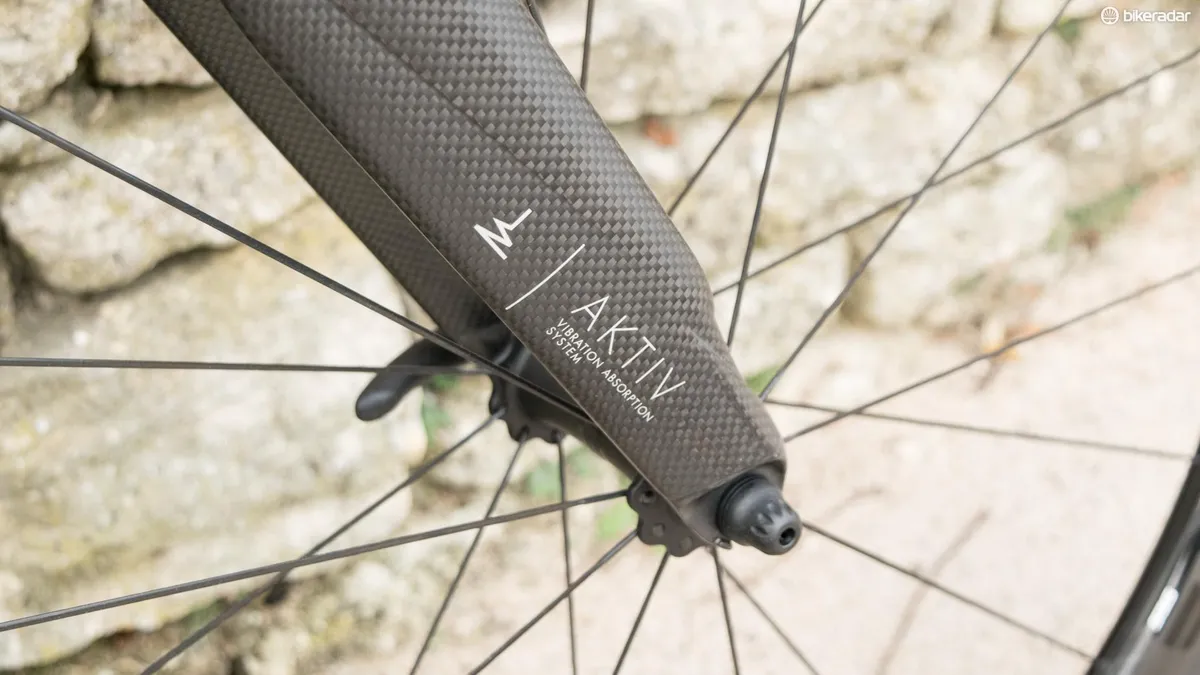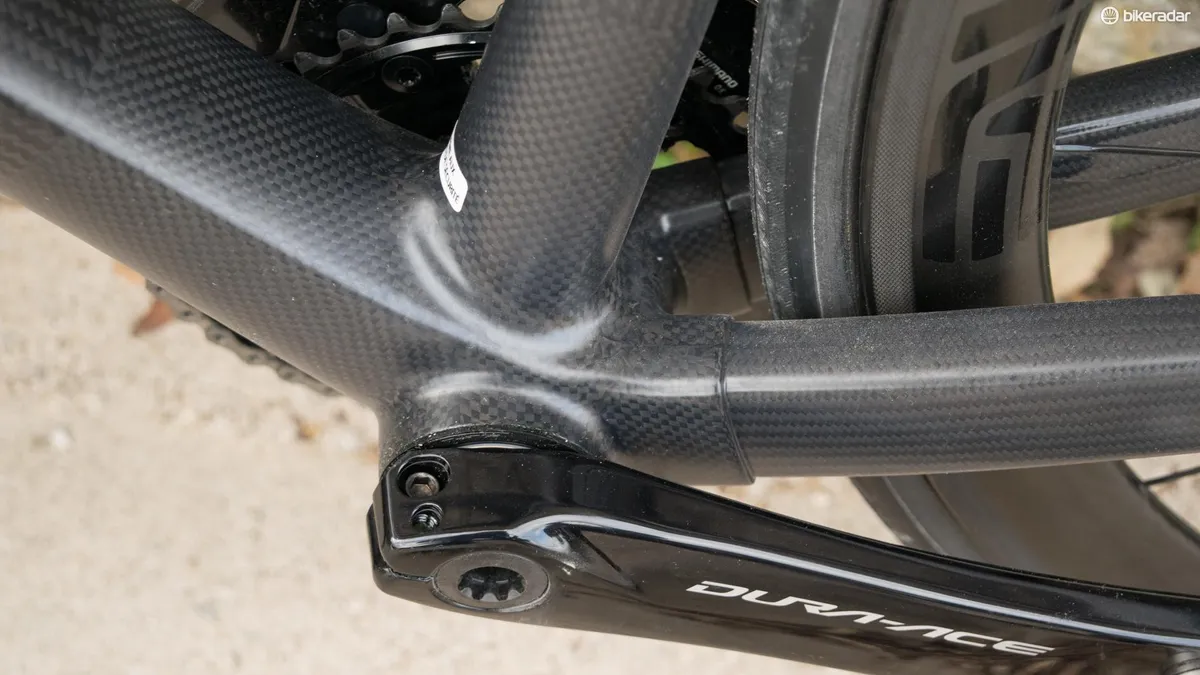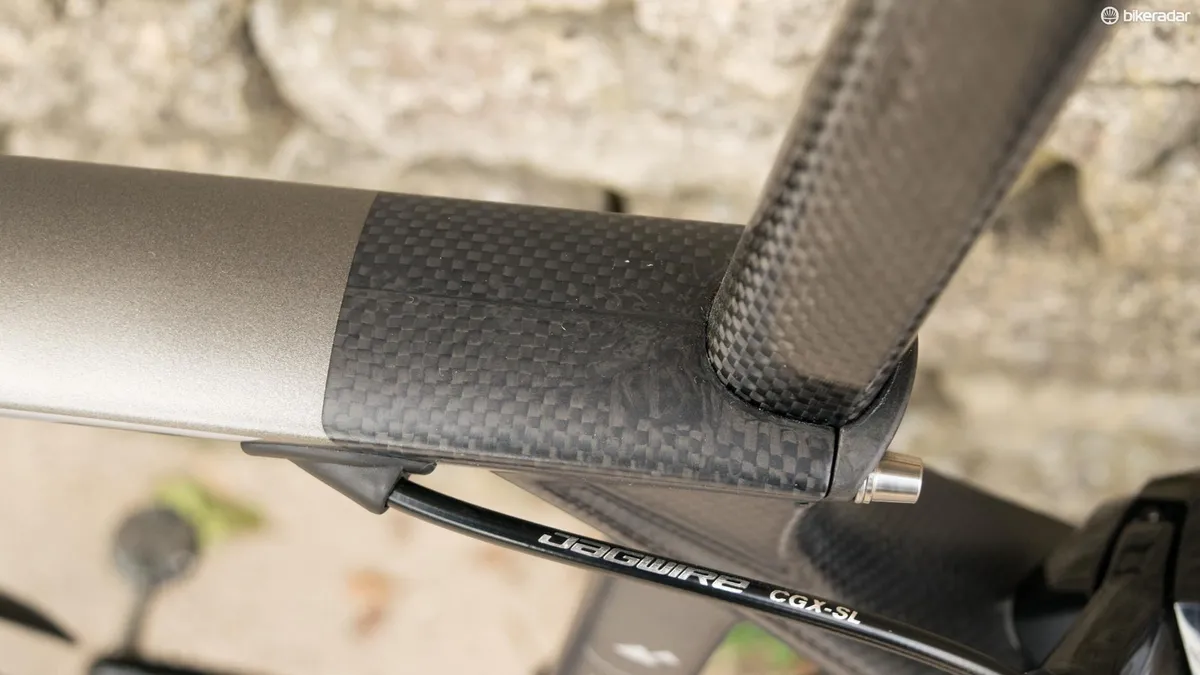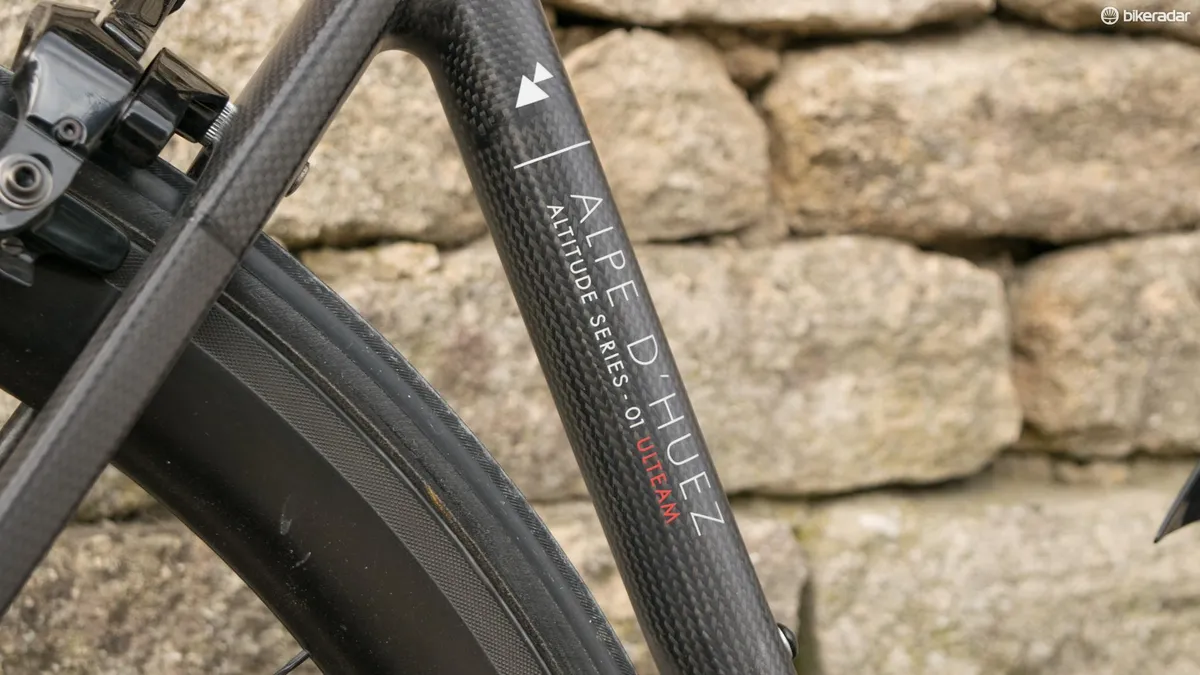The Time Alpe d’Huez 01 is the latest and greatest lightweight climber from the Grenoble-based brand. It replaces the Izon as Time’s ‘Altitude’ bike, a counterpart to the aero Scylon and the endurance-focused Fluidity.
- Time Alpe d’Huez first look
- The 2018 Specialized Tarmac Pro — green, purple, sparkly, lovely
- How this engineering student has reinvented the wheel
For an introduction to the two Alpe d’Huez models, read my detailed first look.
Time Alpe d'Huez 01 Ulteam specs
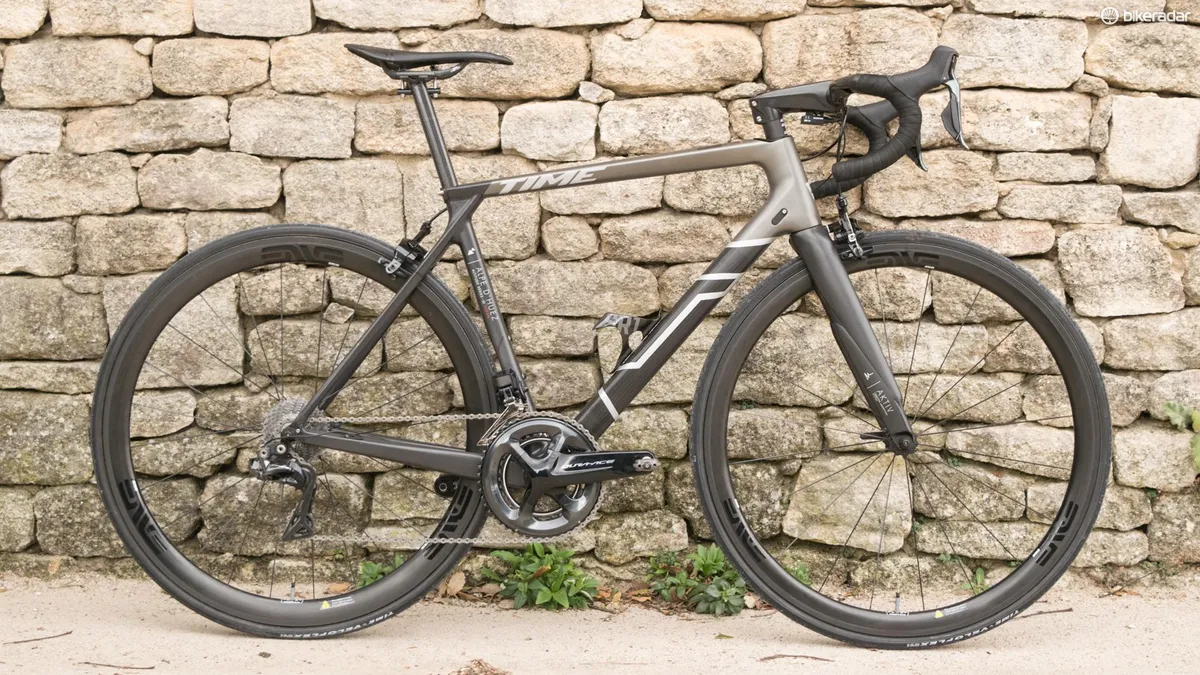
- Weight: 6.2kg (size S, claimed)
- Frame: Time Alpe d'Huez 01 Ulteam
- Fork: Time Aktiv
- Wheels: Enve SES 3.4 tubular
- Tyres: Time by Veloflex 25mm tubular
- Crankset: Shimano Dura-Ace
- Bottom bracket: BB386 to Shimano
- Shifters: Shimano Dura-Ace R9150
- Front derailleur: Shimano Dura-Ace R9150
- Rear derailleur: Shimano Dura-Ace R9150
- Cassette: Shimano Dura-Ace 11-28
- Chain: Shimano Dura-Ace
- Brakes: Shimano Dura-Ace rim
- Handlebars: Time Ergodrive carbon
- Stem: Time Monolink carbon
- Saddle: Selle San Marco Superleggera
- Seatpost: Time Directlink carbon
Time Alpe d'Huez 01 Ulteam frame
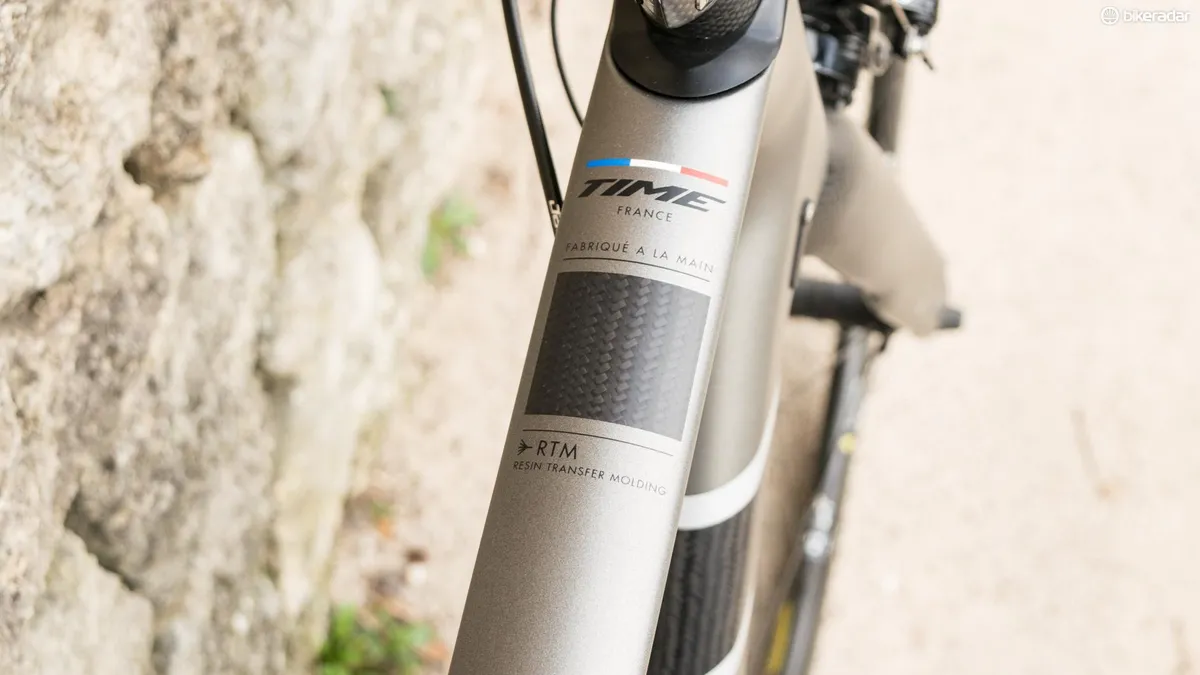
Time makes great play of its artisan credentials, citing the fact that a single Alpe d’Huez frame takes 22 hours of “manual labour” to construct.
At a claimed 840g for a Small without paint, the Alpe d’Huez’s frame is 8.7 percent lighter than its predecessor the Izon and, according to Time, the stiffness-to-weight ratio has improved by just over 25 percent.
Externally, the Alpe d’Huez isn’t the most radical of designs, one might even suggest it’s slightly old-fashioned. The seatstays are barely dropped, the clearances are ample rather than massive and, of course, there aren’t any disc brakes! (A disc version will be along in a year or so, however.)
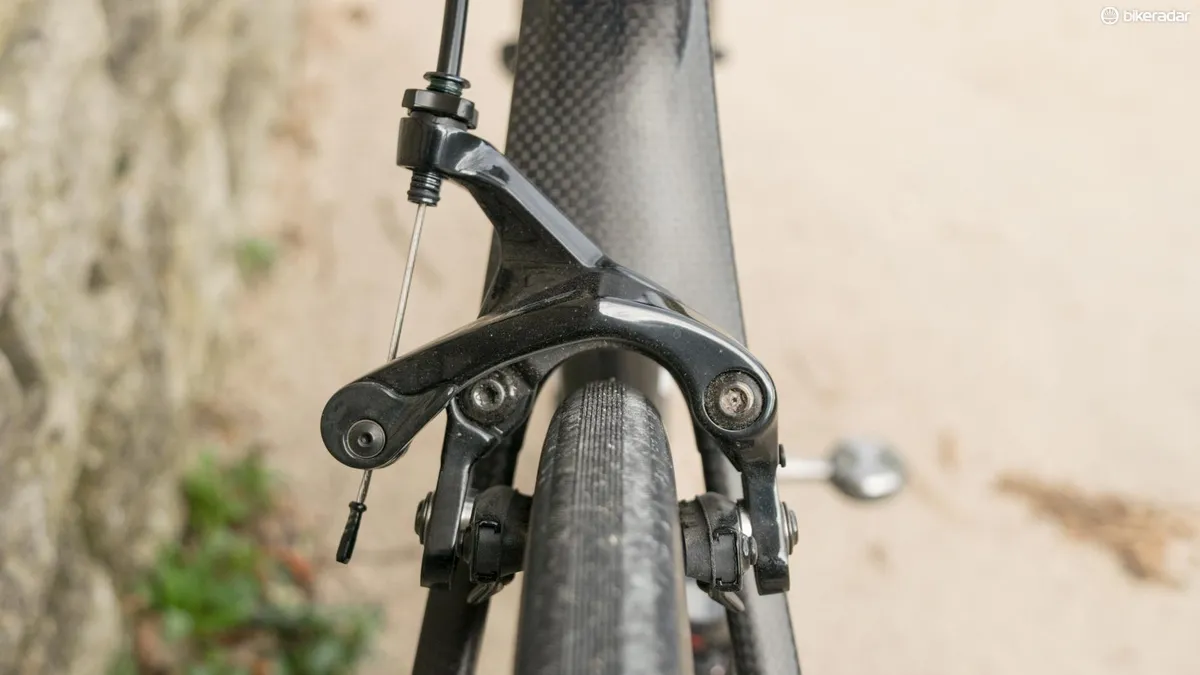
But, beneath the surface, Time’s new frame could never be called ordinary or primitive. For one, it uses Vectran fibres in addition to carbon to improve ride quality, and, as explained in my first look, the actual moulding process differs somewhat from that used to produce standard carbon lay-ups.
As there’s no cosmetic layer of carbon on the Alpe d’Huez frame, the unpainted sections reveal some of the construction. You can see where sections of weave meet, and minor variations mean no two frames will look quite alike.

The Alpe d’Huez’s geometry is fairly middle-of-the-road in race-bike terms. A 550mm top tube on a Medium sounds fairly long, but a not-very-steep 73 degree seat angle means that’s pretty middling, producing a reach figure of 383mm.
The bike is designed for a zero-setback (or ‘Directlink’ in Time speak) seatpost, so it all balances out.
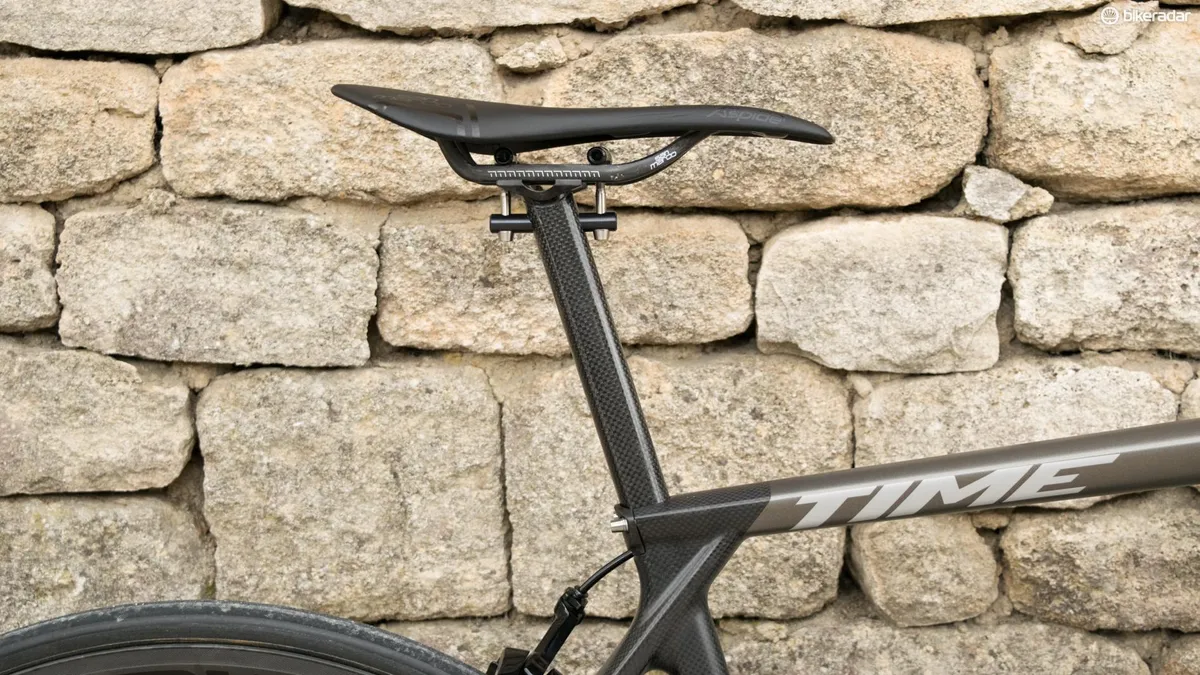
On paper, the head tubes appear slightly tall for a racer, but with essentially no added stack from the headset, they aren’t excessive. A Medium has 562mm of stack.
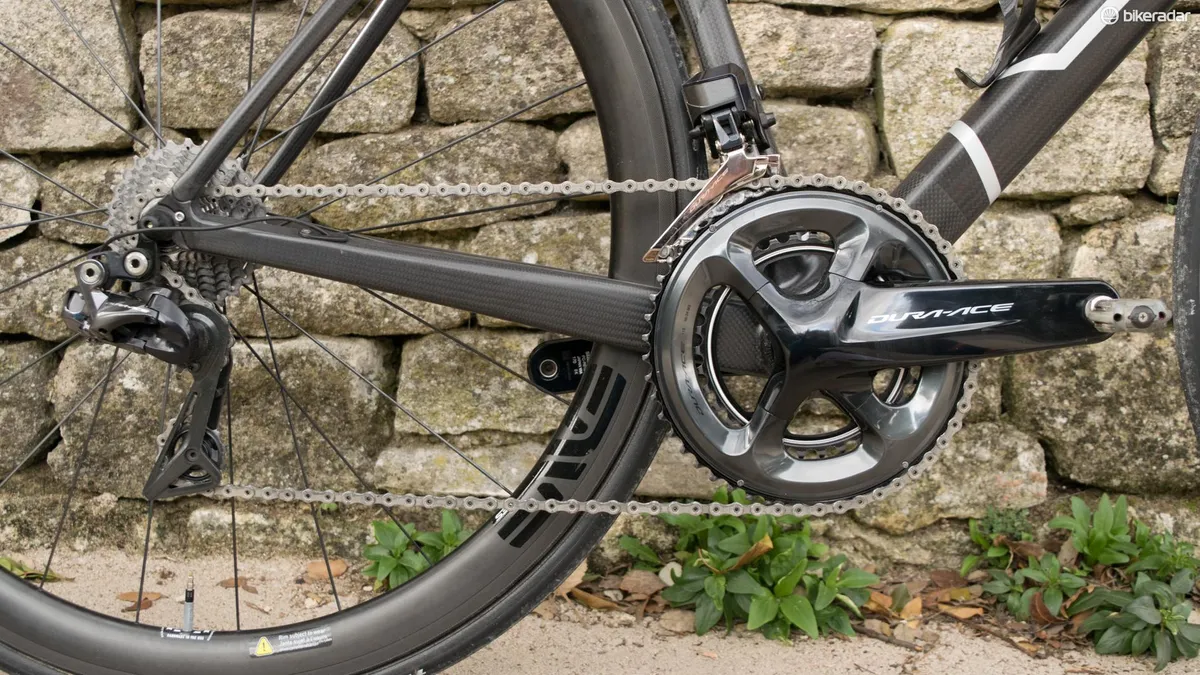
As tested with Shimano Dura-Ace Di2, all-carbon Time finishing kit and Enve tubulars, the limited edition Alpe d’Huez 01 Ulteam is a seriously expensive machine.
The bike I rode weighs a claimed (but totally plausible) 6.2kg without pedals. But you can have the same frame in a much cheaper package for a fraction of the outlay.
Time Alpe d'Huez 01 Ulteam ride impressions
My test ride on the Alpe d'Huez 01 included a good variety of terrain
The launch of the Alpe d’Huez took place in a hilltop village in the south of France, and my test ride consisted of two laps of a short, hilly course that included some delightful technical descending and a good bit of climbing.
Time only had Small test bikes available and I’d have preferred to be on a Medium, but this didn’t stop me from getting a good sense of how the Alpe d’Huez rides.
Time touted the bike’s stiffness and it was evident, by the bucketload. It is fearsomely rigid when you chuck it around and accurate in the way a true racer should be.
The brakes were set up Euro-style and it was quite windy on my test ride, so I had to exercise some caution, but the Alpe d’Huez really did prove a satisfying thing to throw down a hill.
Braking late and leaning hard into the bends is just so easy on a bike this stiff, and yet it doesn’t feel skittish.
Having said that, on sections of broken tarmac the bike was relatively uncompromising. I did my first lap on very hard tyres because I was late showing up for the ride (sorry guys!), but, even after dropping down to my usual pressures, there was no disguising that this is a firm and direct ride.
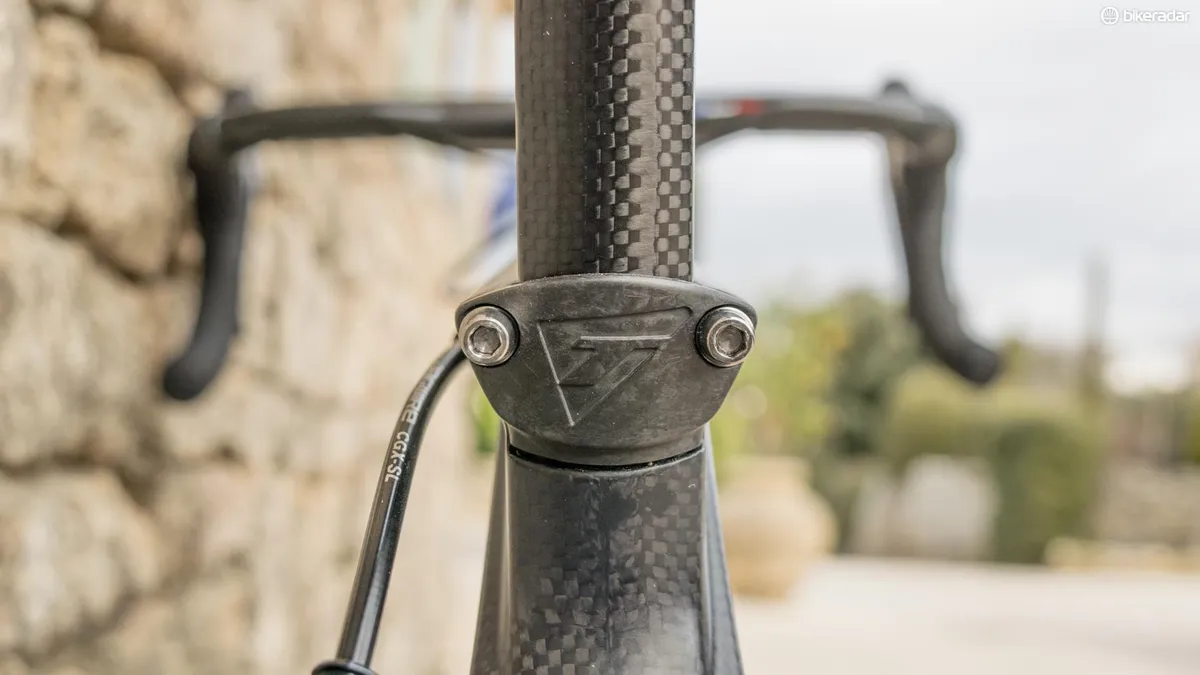
That’s not to say it isn’t smooth however — there wasn’t a hint of buzziness, but don’t mistake the Alpe d’Huez for a cosseting endurance bike, it’s anything but.
Curiously, despite the huge responsiveness of the frame and the unyielding feel of the rear triangle, I actually experienced a tiny bit of brake rub at the back end.
The relationship between wheel and frame stiffness is not a simple one however, and I think it’s likely to have been caused by a very stiff rim rather than a frame lacking in stiffness, as the bike felt utterly unyielding under pedalling.
In all, the Alpe d'Huez shows great promise as a pure racer's machine and it offers an intriguing combination of old-school aesthetics and modern frame-tech. Might it be too focused for the day-to-day? I haven't made up my mind yet.
